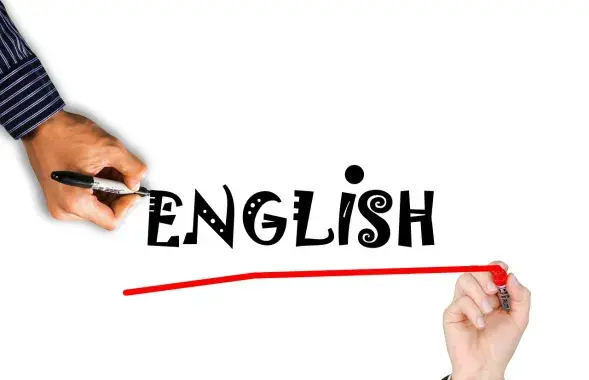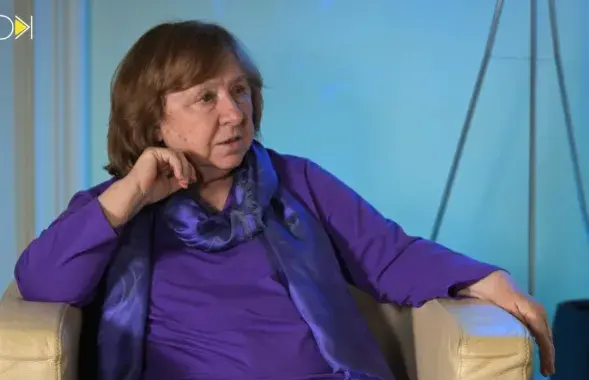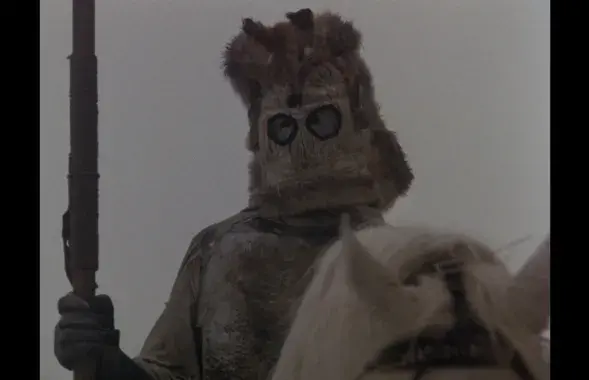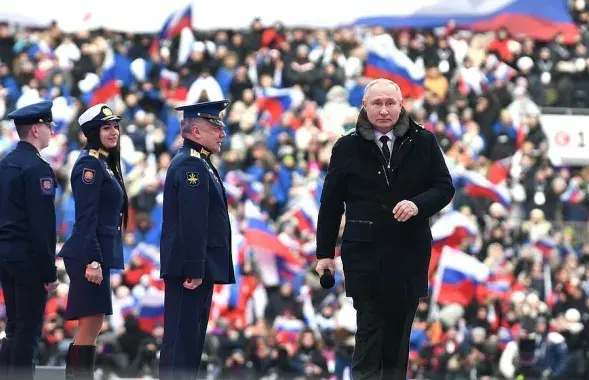Kebich: “If my book did not offend anyone it would mean I should not have written it”
On the eve of the release of Vyachaslau Kebich’s book of memoirs “Temptation of Power” the former Prime Minister told ERB why he did not consider it to be memoirs, how he had thrown away his first draft, who was offended and whether there was anything about Lukashenka. ERB: People write memoirs when hey have a lot to tell others. Or they think it is time to do it. What made you write the book? Why did you do it now?
Vyachaslau Kebіch: “I cannot call my book memoirs. Memoirs are notes of people recalling their life. I wrote very little about my own life. I described events – the ones that took place before the collapse of the Soviet Union and those that have been happening up to now. That is why the book is rather publicistic and political compared to memoirs. I started writing it two years ago. I threw away the first draft – I did not really like it. So I started from scratch again. Speaking about the reason why I decided to start it … I did not want to do it and did not think of doing it. However, meetings with my friends and former leaders showed me that many people did not know what had been happening in the previous period. They reproached me with the fact that I had not written anything about the events I knew better than anyone else”.
ERB: Could you give an example?
Vyachaslau Kebіch: “For example, let’s discuss the events that took place in Belavezha. The three leaders that signed the document tried to present themselves as heroes of those agreements. However, their words are sometimes contradictory. Thus, Krauchuk commented on it twice and each time his comments were different. Once he said: “If I had known what would happen after the agreement I would have cut off my hand”. Then he said that they had done the right thing and committed a great deed. I tried to describe the events the way they were and to tell people how it happened”.
ERB: Did you express your attitude to those events?
Vyachaslau Kebіch: “I wrote that the three republics should have agreed on doing something really necessary before joining the CIS. I said that Yeltsin could have united the three republics but he destroyed them. These are the conclusions I often arrive at”.
ERB: Did you show the draft to your friends, colleagues or opponents?
Vyachaslau Kebіch: “I showed them some paragraphs but not the whole manuscript. If you show everything you may step on the path of those who start recommending you something”.
ERB: Is there anything that may offend some people?
Vyachaslau Kebіch: “If there were no moments like that it would mean I should not have written this book”.
ERB: Do you know who is likely to be offended?
Vyachaslau Kebіch: “I won’t tell you any names. Let them read the book themselves”.
ERB: What is the most critical moment in the book?
Vyachaslau Kebіch: “My confrontation with the government, the opposition and the Belarusian nationalists. Confrontation with the Belarusian National Front. It was nationalism that lost in Belarus. If you remember, nationalist parties decided to gain revenge after the collapse of the Soviet Union and sometimes it resulted in blood. It did not happen here”.
ERB: Don’t you think that it led to people abandoning our national culture and traditions?
Vyachaslau Kebіch: “I will not comment on it”.
ERB: Is there anything you would like to describe that has not been included in the book?
Vyachaslau Kebіch: “Authors cannot tell everything they like”…
ERB: Are there friends in politics or doesn’t politics depend on friendship?
Vyachaslau Kebіch: “Sometimes politics may make you quarrel with your best friend to such an extent that you stop being friends. It did happen in my life. But I won’t tell you who it was”.
ERB: Is your book chilly or there are some emotions?
Vyachaslau Kebіch: “Of course, there are emotions”.
ERB: What are the strongest emotions? Do they belong to 1994, the period when you lost the presidential election?
Vyachaslau Kebіch: “Yes, they are connected with 1994 too. If I had written the book in 1995 or 1996 I would not be satisfied with it now. Everything passed and I described it as an outside observer of events and emotions”.
ERB: Will you present books with your autograph to anyone?
Vyachaslau Kebіch: “I will present it to my closest friends in the first place”.
ERB: Who will it be?
Vyachaslau Kebіch: “They will know it when they get the book. Naming one or two friends means I will offend the others”.
ERB: Shushkevich used to be your main opponent and adversary in the 1990s. On what terms are you now?
Vyachaslau Kebіch: “We are on very good terms. If you noticed it, neither me nor him insult or reproach each other. Our opinions used to differ a lot but we tried to make people watching our actions believe that we stuck to the same policy”.
ERB: Did you express you opinion about the behavior of Lukashenka in your book?
Vyachaslau Kebіch: “I did”.
ERB: Will you present the book to him?
Vyachaslau Kebіch: “Sure!”
Passages from the book by www.camarade.biz — bymedia.net
Vyachaslau Kebіch: “I cannot call my book memoirs. Memoirs are notes of people recalling their life. I wrote very little about my own life. I described events – the ones that took place before the collapse of the Soviet Union and those that have been happening up to now. That is why the book is rather publicistic and political compared to memoirs. I started writing it two years ago. I threw away the first draft – I did not really like it. So I started from scratch again. Speaking about the reason why I decided to start it … I did not want to do it and did not think of doing it. However, meetings with my friends and former leaders showed me that many people did not know what had been happening in the previous period. They reproached me with the fact that I had not written anything about the events I knew better than anyone else”.
ERB: Could you give an example?
Vyachaslau Kebіch: “For example, let’s discuss the events that took place in Belavezha. The three leaders that signed the document tried to present themselves as heroes of those agreements. However, their words are sometimes contradictory. Thus, Krauchuk commented on it twice and each time his comments were different. Once he said: “If I had known what would happen after the agreement I would have cut off my hand”. Then he said that they had done the right thing and committed a great deed. I tried to describe the events the way they were and to tell people how it happened”.
ERB: Did you express your attitude to those events?
Vyachaslau Kebіch: “I wrote that the three republics should have agreed on doing something really necessary before joining the CIS. I said that Yeltsin could have united the three republics but he destroyed them. These are the conclusions I often arrive at”.
ERB: Did you show the draft to your friends, colleagues or opponents?
Vyachaslau Kebіch: “I showed them some paragraphs but not the whole manuscript. If you show everything you may step on the path of those who start recommending you something”.
ERB: Is there anything that may offend some people?
Vyachaslau Kebіch: “If there were no moments like that it would mean I should not have written this book”.
ERB: Do you know who is likely to be offended?
Vyachaslau Kebіch: “I won’t tell you any names. Let them read the book themselves”.
ERB: What is the most critical moment in the book?
Vyachaslau Kebіch: “My confrontation with the government, the opposition and the Belarusian nationalists. Confrontation with the Belarusian National Front. It was nationalism that lost in Belarus. If you remember, nationalist parties decided to gain revenge after the collapse of the Soviet Union and sometimes it resulted in blood. It did not happen here”.
ERB: Don’t you think that it led to people abandoning our national culture and traditions?
Vyachaslau Kebіch: “I will not comment on it”.
ERB: Is there anything you would like to describe that has not been included in the book?
Vyachaslau Kebіch: “Authors cannot tell everything they like”…
ERB: Are there friends in politics or doesn’t politics depend on friendship?
Vyachaslau Kebіch: “Sometimes politics may make you quarrel with your best friend to such an extent that you stop being friends. It did happen in my life. But I won’t tell you who it was”.
ERB: Is your book chilly or there are some emotions?
Vyachaslau Kebіch: “Of course, there are emotions”.
ERB: What are the strongest emotions? Do they belong to 1994, the period when you lost the presidential election?
Vyachaslau Kebіch: “Yes, they are connected with 1994 too. If I had written the book in 1995 or 1996 I would not be satisfied with it now. Everything passed and I described it as an outside observer of events and emotions”.
ERB: Will you present books with your autograph to anyone?
Vyachaslau Kebіch: “I will present it to my closest friends in the first place”.
ERB: Who will it be?
Vyachaslau Kebіch: “They will know it when they get the book. Naming one or two friends means I will offend the others”.
ERB: Shushkevich used to be your main opponent and adversary in the 1990s. On what terms are you now?
Vyachaslau Kebіch: “We are on very good terms. If you noticed it, neither me nor him insult or reproach each other. Our opinions used to differ a lot but we tried to make people watching our actions believe that we stuck to the same policy”.
ERB: Did you express you opinion about the behavior of Lukashenka in your book?
Vyachaslau Kebіch: “I did”.
ERB: Will you present the book to him?
Vyachaslau Kebіch: “Sure!”
Passages from the book by www.camarade.biz — bymedia.net
















